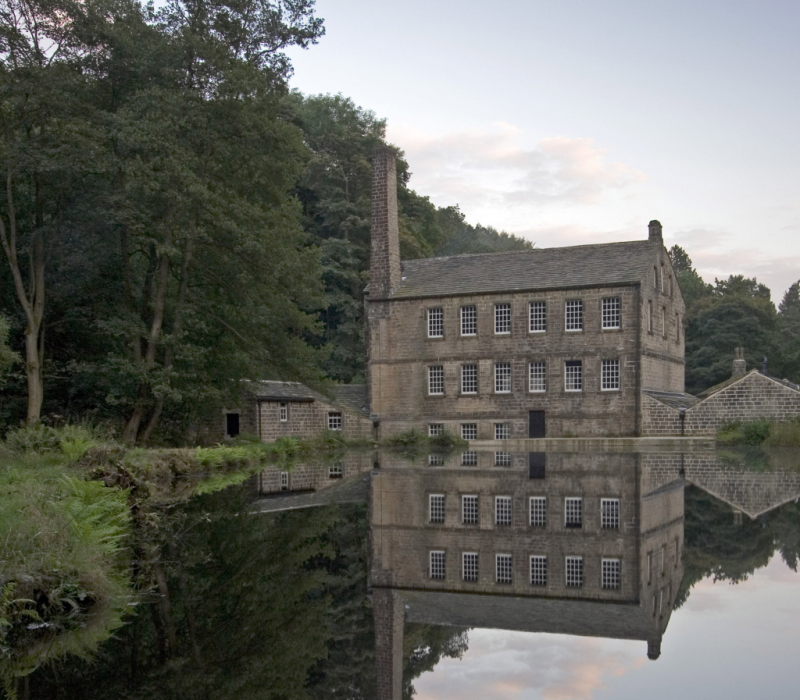Dulas has announced that works to refurbish and upgrade the off-grid system at the National Trust’s award-winning Gibson Mill site will commence this week.

The mill, located within Hardcastle Crags, Hebden Bridge, is the first heritage building with a visitor centre and associated facilities to operate 100 per cent off-grid and through the sole use of renewable energy technologies. Dulas’ work will ensure that the site will be able to preserve its sustainable spirit and protect the local environment, whilst supporting swelling visitor numbers and evolving event demands that have seen the site’s energy use increase by 200 per cent since 2005.
Gibson Mill, built around 1800 as one of the first mills of the industrial revolution, has had an extraordinarily varied life. After a century as a cotton mill, it was converted to provide entertainment for local people, offering a dance hall, a roller-skating rink, refreshments and boating on the mill pond. The National Trust acquired the mill following a period of disuse in 1950, and in 2005, with support from Dulas, launched a project to make the site entirely energy self-sufficient.
The initial work carried out by Dulas included the restoration and reinstatement of the cotton mill’s original 1926 Francis hydro turbine, the installation of a smaller Crossflow hydro turbine, a solar photovoltaic system, and a battery storage system. The combination of these technologies was chosen to ensure that the site’s electricity needs were met through sustainable means at all times.
Jonathon Brewer, general manager for the National Trust at Hardcastle Crags, said: “Whilst this combination of sustainable technologies previously produced an excess of electricity for the site, Gibson Mill’s needs have evolved dramatically in the last 14 years. Upgrading and refurbishing the 2005 system will make sure this extraordinary site can manage the power challenges raised by public and private events, as well as increasing visitor numbers.”
Following a consultancy period where Dulas reviewed the existing system together with over a decade of data on the site’s energy consumption and renewable energy performance, the work to upgrade Gibson Mill’s sustainable energy system is scheduled to commence this week.
The modernisation work will include the replacement of the original battery storage system with a new battery bank that offers 30 per cent more storage capacity. The site’s three inverters will also be replaced and reconfigured to satisfy greater peak power demand and provide greater system flexibility.

